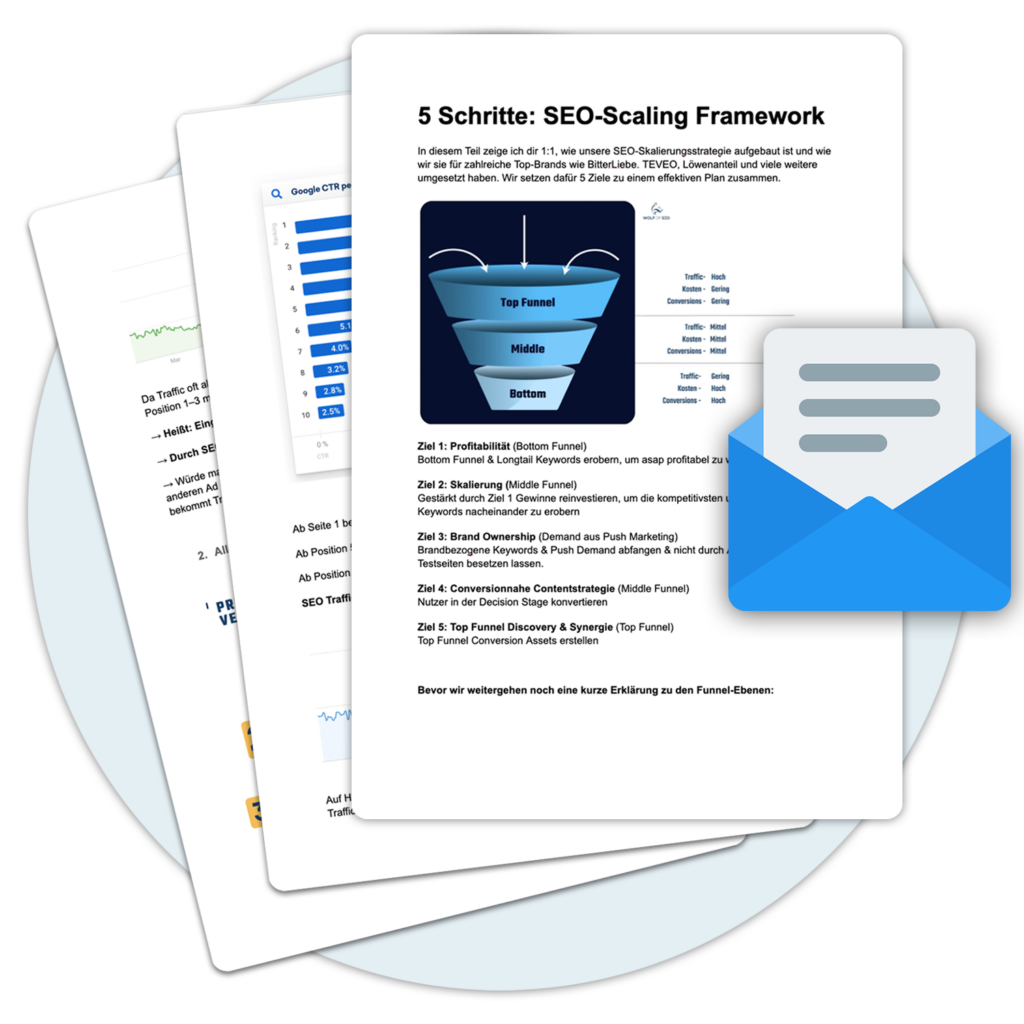Ad Blocker
Ad Blocker are tools or software that allow users to block advertising on websites and in apps. They enable a customized browsing experience by hiding annoying ads. Ad Blocker are widely used today and have advantages and disadvantages for both users and advertisers.
What is an ad blocker?
A Ad Blocker is a software or extension for the web browser that blocks advertisements on websites and thus prevents them from being displayed to the user. Ad Blocker are a reaction to the increasing number of online advertisements, which are often perceived as annoying and intrusive. With a Ad Blocker users can improve their Internet experience by hiding unwanted advertisements.
Ad Blocker work by using a series of filters to identify and block advertising. These filters are based on various criteria such as text, image or JavaScript-Code. Ad Blocker can also block trackers that collect information about users' surfing behavior.
The use of ad blockers has increased significantly in recent years. According to a study, more than 600 million people worldwide use Ad Blockerto block advertising and improve your online experience.
There are different types of ad blockers, including Browser-extensions such as AdBlock Plus, AdGuard and uBlock Origin. These extensions can be downloaded and installed free of charge. There are also standaloneAd Blocker such as Pi-hole, which can be operated on your own server or Raspberry Pi.
The use of ad blockers has an impact on advertisers and website operators. As advertising is blocked, advertisers receive less visibility for their ads and can achieve fewer conversions. This can lead to a decrease in advertising revenue. Website operators who are mainly dependent on advertising can also be financially affected.
Despite the impact on advertisers, there are also advantages of ad blockers for users. By blocking advertising, users can shorten the loading time of websites and protect their data connection. They are also protected from potentially malicious advertising that may contain malware or fraudulent content.
In terms of the legal aspects of ad blockers, their use is legal in most countries. However, there are exceptions, such as bypassing technical protection devices to block advertising, which may be illegal in some countries.
Why do users use ad blockers?
Ad Blocker have gained popularity in recent years and are used by a significant number of Internet users. But why are so many people opting for them? Ad Blocker to use? Some of the most common reasons are explained below:
- Improving the user experience: Advertising can often be annoying, especially when it appears unexpectedly or takes up the entire screen. Ad Blocker allow users to hide unwanted advertising and enjoy the Internet without interruptions.
- Increase in loading times: Advertising can significantly slow down the loading times of websites. By blocking the display of advertising, you can Ad Blocker contribute to websites loading faster.
- Protection against malware: Some types of advertising may contain malicious content that can infect a user's device or steal personal data. Ad Blocker offer additional protection against such threats by blocking malicious ads.
- Privacy: Many users are concerned about the amount of personal data that is collected through advertising. Ad Blocker can help reduce the amount of tracking and data collection by blocking ads that track users.
Overall, users use Ad Blockerto improve their online experience, reduce loading times, protect themselves from malware and protect their privacy. It is important to address these concerns and respond accordingly to the increasing prevalence of ad blockers.
Consequences of ad blockers for advertisers
Ad Blocker have far-reaching consequences for advertisers, as they turn traditional advertising methods and strategies upside down. Here are some of the key implications of ad blockers for advertisers:
- Lower Range and visibility: Ad Blocker prevent the loading of ads on web pages, which results in a lower Range and visibility of advertising banners, Pop-ups and other forms of advertising. Advertisers therefore reach fewer potential customers and their advertising messages are less likely to be noticed.
- Lower click and conversion rates: Since many users Ad Blocker use, fewer ads are displayed and correspondingly fewer are clicked. This leads to lower click-through rates and conversion rates for advertisers, which affects their marketing effectiveness.
- Decline in advertising revenue: Advertisers who are dependent on advertising revenue see a direct impact on their revenue through the use of ad blockers. Fewer ads are displayed and clicked, which leads to lower revenue from advertising.
- Change in advertising strategies: Advertisers need to find new ways to reach their target audience and spread their messages. They need to rethink their advertising strategies and use alternative channels and methods to minimize the impact of ad blockers.
- Higher costs for advertising: To continue reaching their target audience, advertisers may need to invest more budget in other advertising methods, such as Influencer-marketing, native advertising or Content-marketing. This can lead to higher costs.
The effects of ad blockers on advertisers are therefore manifold and require an adaptation of marketing strategies. Advertisers need to get creative and find innovative solutions in order to continue to reach their target group and achieve their marketing goals.
Advantages of ad blockers for users
Ad Blocker offer users several benefits that help improve their online browsing experience. Here are some of the key benefits:
- Faster loading times: By blocking ads, the number of resources to be loaded is reduced, which leads to a faster loading speed of websites.
- Better user experience: Ads can sometimes be perceived as intrusive or annoying. With a Ad Blocker users can enjoy an ad-free environment and concentrate better on the actual content.
- Improved privacy and security: Some ads may contain tracking tools that track user behavior. With a Ad Blocker users can protect their privacy and reduce the risk of malware infections.
- Saving data: Ads can consume large amounts of data. By blocking ads, users can use their data quotas more efficiently and save costs.
- Reduction of distractions: Ads can be distracting and disrupt concentration. With a Ad Blocker users can concentrate better on their tasks and spend less time on unintentional distractions.
How does an ad blocker work?
A Ad Blocker (also known as an ad blocker) is software that blocks advertising and prevents it from being displayed on certain websites. It usually uses a filter that recognizes and blocks ad content before it can even be loaded.
Ad Blocker can work in a variety of ways, including:
- Filtering of advertising elements: The Ad Blocker recognizes images, texts, scripts and other elements that are identified as advertising and prevents them from being displayed. As a result, the website remains ad-free and users can concentrate on the actual content.
- Blacklisting and whitelisting: Ad Blocker often use lists that identify websites or advertising networks that are known to display unwanted advertising. Those on the blacklist are blocked, while websites on the whitelist are excluded from filtering.
- Protection from tracking: Many Ad Blocker also offer protection against tracking mechanisms used by advertising networks to record user behavior and display personalized advertising. Blocking trackers protects the privacy of users.
It is important to note that not all advertising is detected by ad blockers. Some forms of advertising, such as native advertising, may be more difficult to detect and block. It can also happen that Ad Blocker occasionally provide false positives and block undesirable elements that are not advertising.
Popular ad blockers
There are a variety of popular ad blockers that help users block unwanted ads and have a better online experience. Here are some of the most popular Ad Blocker:
- AdBlock Plus: This Ad Blocker is one of the most popular and most frequently used. It not only blocks ads on websites, but also on YouTube and other platforms.
- uBlock Origin: This open sourceAd Blocker is fast and effective. It not only blocks advertising, but also tracking scripts and other annoying elements on websites.
- AdGuard: AdGuard offers comprehensive protection against advertising, tracking and phishing attempts. There is both a free and a paid version.
- NoScript: NoScript not only blocks advertising, but also JavaScript on websites. This not only suppresses the display of ads, but also reduces the risk of malware infections.
- Ghostery: Ghostery not only blocks ads, but also trackers and Cookies. It also provides detailed information about the trackers used on a website.
No matter for which Ad Blocker Before deciding whether to block advertising and tracking, it is important to note that some websites may not function properly if advertising and tracking are blocked. In such cases, it may be useful to exempt certain websites from blocking or to disable the Ad Blocker temporarily deactivate it.
Ad blocker on mobile devices
A growing number of Internet users today use mobile devices such as smartphones and tablets to surf the Internet. With the increasing popularity of these devices, the use of ad blockers on mobile devices is also on the rise. Ad Blocker are software programs or apps that block advertising on websites and thus enable an ad-free surfing experience.
Mobile advertising can be annoying on many websites and limit screen space, especially on smaller smartphone screens. Ad Blocker on mobile devices can help users enjoy a clean and ad-free user interface.
Ad Blocker on mobile devices work in a similar way to Ad Blocker on desktop computers. They recognize advertisements and block them before they are displayed on the screen of the mobile device. This is usually done using filter lists that identify and block known ads and trackers.
A popular option for Ad Blocker on mobile devices is to download a special app. These apps offer a variety of functions that go beyond simply blocking ads. For example, they can also speed up the loading of websites and reduce data usage, as less data is downloaded by blocking ads.
Ad Blocker on mobile devices can also have disadvantages. On the one hand, they can lead to certain content on websites not being displayed correctly. Some websites rely on generating advertising revenue to provide their content for free. By blocking advertising, such websites may no longer be able to continue to exist.
| Advantages of ad blockers on mobile devices: | Disadvantages of ad blockers on mobile devices: |
|---|---|
| - Ad-free surfing on mobile devices | - Some content on websites may not be displayed correctly |
| - Faster loading of websites | - Websites can be affected if they are dependent on advertising revenue |
| - Reduction of data consumption |
Advertisers should be aware that a growing number of users Ad Blocker on their mobile devices. This means that their ads may not be seen and are less effective. However, there are also ways to deal with ad blockers and develop effective advertising strategies that add value to users and do not find them annoying.
Tips for advertisers when dealing with ad blockers
In order to deal effectively with ad blockers as an advertiser, it is important to follow a few tips.
1. make sure that your website is user-friendly and offers a positive user experience. Avoid annoying advertising or Pop-upsthat could inconvenience visitors.
2. use native advertising: One way of advertising despite Ad Blocker is through native advertising. The advertising is designed in such a way that it appears natively in the Content is integrated and offers users added value.
3. use in-app advertising: If your target group is mainly on mobile devices, you should also consider in-app advertising. This is not blocked by ad blockers and can be an effective alternative.
4. cooperations with influencers: Collaborating with influencers or bloggers can be a way to place your advertising. This type of advertising is often not blocked by ad blockers and reaches a specific target group.
5. provide valuable content: Make sure that your advertising message offers added value for users. If your advertising is relevant and interesting, you have a higher chance that users will read it despite Ad Blocker accept.
| Advantages of advertising despite Ad Blocker: | Tips |
|---|---|
| Increase brand awareness | Use of discreet and non-intrusive advertising |
| Generation of qualified leads | Choosing the right platforms for advertising |
| Creating trust and customer loyalty | Cooperation with trustworthy influencers or partners |
It is also important to keep up to date with the latest developments and trends in the advertising industry and to continuously educate yourself to discover new ways of dealing with ad blockers.
Legal aspects of ad blockers
Ad Blocker are not only a challenge for advertisers and website operators, but also pose a variety of challenges. Legal issues on. This is because blocking advertising can in some cases violate Legal provisions violated.
An important legal question is the Consent to the collection of data. Many websites use advertising to make their content available free of charge. Personal data is often collected in order to tailor the advertising to the user. When a user clicks on a Ad Blocker the user can opt out of this data collection without having explicitly confirmed or consented to it. This may contradict the Privacy policy stand.
Also the Aspect of copyright plays a role in the use of ad blockers. Websites are often financed by advertising and rely on revenue from clicks or ads. If advertising is blocked, website operators miss out on potential revenue that they are actually entitled to. This can be seen as Infringement of copyright be viewed as a
Obligation to notify is another important legal aspect. In some cases, websites are legally obliged to display certain information in the form of advertisements. This applies, for example, to legally required warnings or consumer information. If a Ad Blocker blocking these ads could violate applicable laws.
It is therefore important that Advertisers and website operators the legal aspects of ad blockers and take appropriate measures to avoid potential legal problems. This can be done, for example, by obtaining the explicit consent users to use ad blockers or through alternative financing models for websites that are not dependent on advertising revenue.
The future of ad blockers
The future of Ad Blocker looks very promising. With the constant advancement of technology and the increasing number of Internet users who Ad Blocker we will most likely continue to see the development and improvement of these tools.
One possible development could be that Ad Blocker to become even more effective at blocking unwanted advertising and possibly even enabling personalized ads. This would allow users to see only relevant advertising that is tailored to their interests and needs.
Another future prospect for Ad Blocker lies in the stronger integration into Internet browsers and operating systems. It is possible that future versions of browsers will already have integrated Ad Blocker or that operating systems offer options to block unwanted advertising on all devices. This would make the use of ad blockers even more convenient and accessible.
At the same time, advertisers will continue to try to find new ways to place their ads despite the growing prevalence of ad blockers. It is possible that we will see more native ad formats that are less invasive and better integrated into the content. Through improved creative and a better understanding of user preferences, advertisers may find that their ads are no longer perceived as intrusive and therefore there is less reason to place an ad blocker. Ad Blocker to use.
Overall, it is difficult to predict exactly how the Ad Blocker will develop in the future. What is certain, however, is that advertisers and marketers will have to respond to new challenges and find innovative solutions in order to continue running effective advertising campaigns.
Alternatives to ad blockers
Although Ad Blocker are a popular solution to protect yourself from unwanted advertising on the Internet, there are also alternative approaches to improve your browsing experience:
- Whitelists of trustworthy websites: Instead of blocking all advertising, you can put certain websites on a whitelist to only allow advertising there. This supports those sites that provide high-quality content.
- Opt-in advertising: Instead of opting out of blocked advertising, users can also decide for themselves what kind of advertising they want to see. Opt-in advertising offers personalized content based on the user's interests.
- Paid content: Many websites rely on a subscription model or charge a small amount for access to ad-free content. This allows users to browse undisturbed while the website continues to generate revenue.
Conclusion
Ad Blocker have a significant impact on the advertising industry and user behavior on the internet. The increasing use of ad blockers shows that many users are annoyed by intrusive advertising and want to block it. Advertisers are therefore faced with the challenge of adapting their advertising strategies in order to reach their target group despite ad blockers.
It is important that advertisers understand the pros and cons of ad blockers. While Ad Blocker while they offer users an improved user experience and protect them from unwanted advertising, they have a negative impact on advertisers as their ads are no longer displayed. This can lead to a loss of revenue and reduced visibility.
To be successful in dealing with ad blockers, advertisers should consider alternative advertising methods that are not blocked by ad blockers. These include native advertising, for example, Influencer-marketing or the use of social media channels. It is also important to improve the user experience by avoiding intrusive advertising formats and offering relevant, engaging content.
Legally, there are currently no uniform regulations on the use of ad blockers. However, advertisers must ensure that their advertising complies with the legal provisions and that no unauthorized measures are taken in order to Ad Blocker to circumvent.
The future of Ad Blocker is uncertain. However, advertisers must be prepared for possible changes and adapt their advertising strategies flexibly. It is possible that Ad Blocker will become even more effective in the future and will be able to block even more advertising. Advertisers should therefore be open to alternative advertising methods and constantly evolve in order to reach their target group.
« Back to Glossary Index




 By
By 